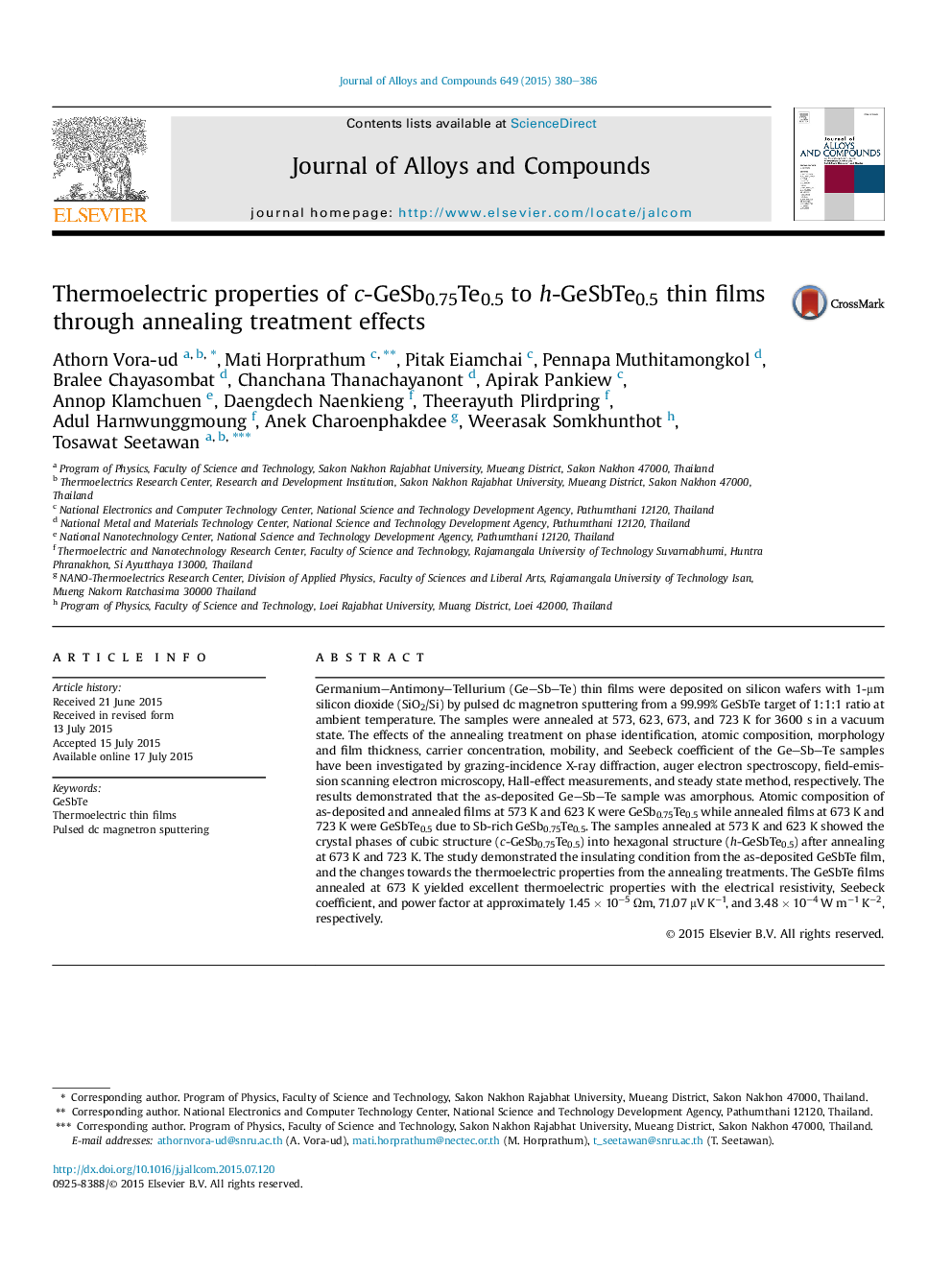| کد مقاله | کد نشریه | سال انتشار | مقاله انگلیسی | نسخه تمام متن |
|---|---|---|---|---|
| 1608607 | 1516244 | 2015 | 7 صفحه PDF | دانلود رایگان |

• GeSbTe thin films were successfully sputtered for thermoelectric properties.
• GeSbTe films were examined among physical, electrical and thermoelectric properties.
• Thermoelectric properties were discussed based on composition of the films.
Germanium–Antimony–Tellurium (Ge–Sb–Te) thin films were deposited on silicon wafers with 1-μm silicon dioxide (SiO2/Si) by pulsed dc magnetron sputtering from a 99.99% GeSbTe target of 1:1:1 ratio at ambient temperature. The samples were annealed at 573, 623, 673, and 723 K for 3600 s in a vacuum state. The effects of the annealing treatment on phase identification, atomic composition, morphology and film thickness, carrier concentration, mobility, and Seebeck coefficient of the Ge–Sb–Te samples have been investigated by grazing-incidence X-ray diffraction, auger electron spectroscopy, field-emission scanning electron microscopy, Hall-effect measurements, and steady state method, respectively. The results demonstrated that the as-deposited Ge–Sb–Te sample was amorphous. Atomic composition of as-deposited and annealed films at 573 K and 623 K were GeSb0.75Te0.5 while annealed films at 673 K and 723 K were GeSbTe0.5 due to Sb-rich GeSb0.75Te0.5. The samples annealed at 573 K and 623 K showed the crystal phases of cubic structure (c-GeSb0.75Te0.5) into hexagonal structure (h-GeSbTe0.5) after annealing at 673 K and 723 K. The study demonstrated the insulating condition from the as-deposited GeSbTe film, and the changes towards the thermoelectric properties from the annealing treatments. The GeSbTe films annealed at 673 K yielded excellent thermoelectric properties with the electrical resistivity, Seebeck coefficient, and power factor at approximately 1.45 × 10−5 Ωm, 71.07 μV K−1, and 3.48 × 10−4 W m−1 K−2, respectively.
Figure optionsDownload as PowerPoint slide
Journal: Journal of Alloys and Compounds - Volume 649, 15 November 2015, Pages 380–386